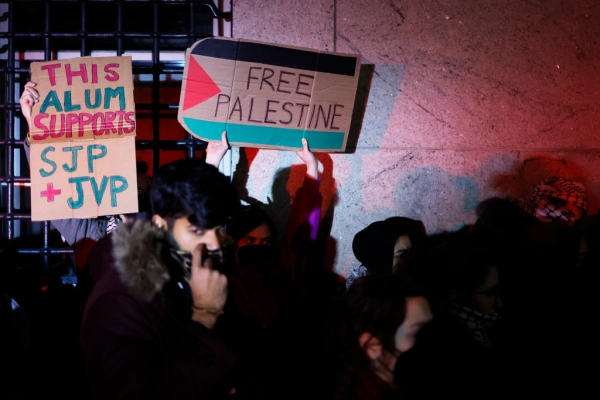Columbia University has once again revised its protest policy, sparking controversy and debate among students and faculty members.
The prestigious Ivy League school has a long history of student activism, with protests often playing a central role in shaping the campus culture. However, in recent years, the university has come under fire for its handling of protests and demonstrations.
In response to criticism and pressure from students and advocacy groups, Columbia has made efforts to update its policies and procedures regarding protests on campus. This latest revision comes after a series of high-profile protests in recent months, including a student-led sit-in at the president’s office to demand divestment from fossil fuels.
According to the new policy, which was announced in a memo to the Columbia community, all protests must now be registered with the university at least 48 hours in advance. Additionally, any organization or individual looking to hold a protest must also provide specific details about the event, including the expected number of participants, the location, and the purpose of the protest.
This new policy has sparked outrage among many students and faculty members, who argue that it infringes on their right to free speech and freedom of expression. Critics also point out that the 48-hour advance notice requirement limits the spontaneity and effectiveness of protests, which are often organized in response to urgent and time-sensitive issues.
In a statement, a group of student activists called the policy “a blatant attempt to suppress dissent and stifle student voices.” They have vowed to continue protesting and pushing back against what they see as an overreach of authority by the university administration.
On the other hand, supporters of the new policy argue that it is necessary to ensure the safety and security of all members of the Columbia community during protests. They point to instances in which protests have turned violent or disrupted campus activities, causing harm to students, faculty, and staff.
Ultimately, the debate over Columbia’s protest policy reflects larger questions about the balance between free speech and public safety on college campuses. As the university continues to grapple with these issues, it remains to be seen how the new policy will be enforced and whether it will lead to a more peaceful and productive campus environment.



